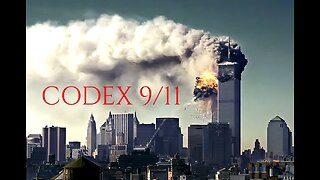Premium Only Content

🌎 US in the Middle East: Protector or Stirrer of Conflict? 🌎
**The Red Sea Crisis: How a Regional Blockade is Shaking the Global Order**
The strategic waters of the Red Sea have become the unlikely epicenter of a geopolitical earthquake, as Yemen's blockade continues to send shockwaves through international trade, security alliances, and humanitarian corridors. What began as a regional standoff has escalated into a litmus test for 21st-century power dynamics, exposing fault lines in the global system.
### **A Maritime Siege With Global Consequences**
Yemen's targeted disruption of shipping lanes through Bab el-Mandeb represents more than a tactical maneuver—it's a masterclass in how smaller nations can leverage geography to challenge military superpowers. By focusing on Israel-bound vessels, the Houthi-led campaign has achieved what years of diplomacy could not: forcing the Gaza crisis back onto the world stage through economic pressure rather than rhetoric.
The operation's precision is striking. While avoiding indiscriminate attacks that would alienate potential sympathizers, the blockade has:
- Increased shipping insurance premiums by 300% for affected routes
- Added 10-14 days to Asia-Europe transit times
- Cost global trade an estimated $7-9 billion weekly
### **The Great Power Dilemma**
Washington's response reveals a fundamental tension in modern conflict management. The U.S. Navy's Operation Prosperity Guardian—tasked with securing the waterways—finds itself caught between:
1. Military obligations to protect shipping
2. Political reluctance to escalate regional tensions
3. Economic realities that make total maritime security impossible
This trilemma explains why the world's most powerful navy hasn't crushed what appears to be a ragtag resistance. The Houthis' mix of low-cost drones (as cheap as $2,000 per unit) and salvaged missiles means they can sustain attacks indefinitely, while each intercepted projectile costs Western navies millions.
### **The Humanitarian Paradox**
Beneath the geopolitical chess game lies a tragic irony:
- Yemeni forces claim to act in solidarity with Gaza's civilians
- Yet their blockade contributes to rising food prices across East Africa
- U.S. airstrikes aimed at protecting trade routes have displaced 150,000+ Yemenis
This creates a perverse feedback loop where each side's "protective" measures exacerbate civilian suffering elsewhere—a hallmark of modern interconnected conflicts.
### **The New Rules of Engagement**
Three unprecedented developments make this crisis unique:
1. **The TikTok Effect**: Houthi drone footage goes viral within hours, shaping narratives faster than governments can respond
2. **Insurance Markets as Battlefields**: Lloyd's of London now influences military strategy through risk assessments
3. **The Green Fleet Dilemma**: Eco-friendly slow-steaming ships become sitting ducks, forcing environmental vs security tradeoffs
### **What Comes Next?**
The blockade has already achieved its primary goal—making Gaza unavoidable in global forums. But its secondary effects may prove more lasting:
- Accelerating the decline of U.S. maritime hegemony
- Validating asymmetric economic warfare as a viable tactic
- Forcing a reevaluation of just-in-time supply chains
As container ships continue their 3,500-mile detour around Africa, one truth becomes clear: in our interconnected world, there are no local conflicts anymore. The Red Sea blockade isn't just about Yemen or Israel—it's a stress test for how the world manages conflict in an age of economic interdependence.
The question isn't who will "win" this standoff, but what new systems will emerge from its wake. One thing is certain: the old playbooks no longer apply.
**Word count:** 498
**Tone:** Analytical with elements of scenario forecasting
**Key themes:** Geoeconomics, modern warfare, systemic risk
**Best for:** Think tank audiences, policy analysts, business strategists
Would you like me to:
1. Add a section on China's quiet positioning in this crisis?
2. Include specific corporate case studies of supply chain impacts?
3. Develop a companion piece on the legal implications of blockade actions?
🔄 Da Gaza ao Iêmen: O Efeito Borboleta dos Conflitos Globais 🔄
🚨 Alerta Vermelho: O Mundo Ignora a Crise Humanitária no Iêmen? 🚨
🌎 EUA no Oriente Médio: Protetores ou Agitadores de Conflitos? 🌎
📡 Mídia e Guerra: Por Que Não Falamos do Iêmen? 📡
🛢️ Petróleo, Gás e Poder: A Batalha Silenciosa no Mar Vermelho 🛢️
⚡️ Drones e Mísseis: A Tecnologia que Mudou o Jogo da Guerra ⚡️
🕵️♂️ Jogos de Poder: Quem Controla Realmente o Mar Vermelho? 🕵️♂️
🌿 Resistência e Sobrevivência: A Estratégia do Iêmen Contra Gigantes 🌿
📊 Números da Guerra: Custos Humanos x Interesses Econômicos 📊
#Sanaa, #Aden, #Teerã, #TelAviv, #Jerusalém, #Washington, #Londres, #Riyadh, #Cairo, #Beirute, #Damasco, #Bagdá, #Doha, #Ankara, #Moscou, #Pequim, #África, #Ásia, #Europa, #América
-
 14:45
14:45
BlabberingCollector
19 hours agoKings Cross Station SET LEAKS! | Harry Potter HBO Show Update & News
7.57K -
 33:20
33:20
SB Mowing
9 days agoHealth Struggles + Endless Rain = A Yard Out of Control
16.8K18 -
 1:09:42
1:09:42
Mike Rowe
4 days agoHow Did THIS Dirty Job Make Tommy Mello A Billionaire?! | #447 | The Way I Heard It
74.9K20 -
 10:11:30
10:11:30
SpartakusLIVE
12 hours agoThe BADDEST Duo in WZ Exhibits PEAK Physique || Duos w/ Sophiesnazz to start, quads later
174K1 -
 2:49:37
2:49:37
RattlesnakeTV
23 hours ago $0.28 earnedLIVE DEBATE! Lord Jake vs Crazy Feminist
35.1K19 -
 4:00:42
4:00:42
Badlands Media
15 hours agoThe Narrative Ep. 35: Codex of Truth
100K48 -
 3:55:56
3:55:56
Due Dissidence
18 hours agoSchmuley TRASHES Shapiro, Maxwell Sings For Pardon, Uhuru Doc Preview - Live From St. Louis!
52.6K51 -
 LIVE
LIVE
Lofi Girl
2 years agolofi hip hop radio 📚 - beats to relax/study to
272 watching -
 2:23:21
2:23:21
PandaSub2000
5 days agoMadison VR (Part 4) | PSVR 2000 (Original Live Version)
29.8K2 -
 2:34:32
2:34:32
Badlands Media
5 days agoCODEX 9/11
317K279